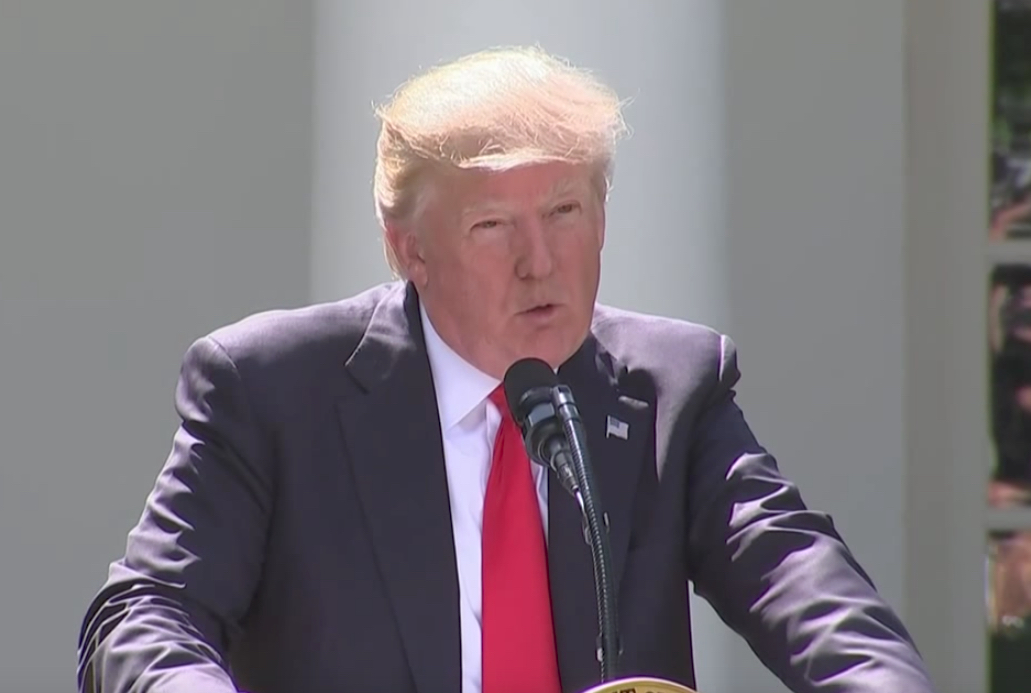To understand why President Donald Trump pulled the United States out of the global Paris climate agreement, we might start by looking at the sources he relied on to justify his decision.
But we’re not going to start there, but we will end there.
Instead, let’s go back to the early 1990s. The tobacco industry was facing multiple bans on advertising its products in countries around the world.
So the tobacco industry took ownership of a study that reviewed a bunch of other studies about the claimed impacts of tobacco advertising on actual tobacco consumption.
In short, the study, handed to Phillip Morris International, concluded there was no real link between tobacco advertising and smoking levels. Studies that had found a link were probably flawed, the report claimed.
The reports, the letters, and the memos back and forth, are all buried away in the Tobacco Industry Documents Archive at the University of California – San Francisco.
Clearly, the report would help the tobacco industry to argue there was no need to regulate the advertising of its products, because that advertising didn’t make a difference to smoking levels one way or the other.
National Economic Research Associates
The company that carried out that tobacco study was National Economic Research Associates.
Why is this relevant to Donald Trump and his decision to pull out of the Paris climate agreement?
When Trump spoke of the “onerous energy restrictions” he claimed the Paris deal placed on the United States, he cited figures from a report by the very same National Economic Research Associates (NERA).
According to the NERA study, the Paris agreement would cut coal and gas production, and “cost” America 2.7 million jobs.
Fossil Fuel Interests
Two groups, namely the American Council for Capital Formation (ACCF) and the U.S Chamber of Commerce, sponsored the NERA report (incidentally, a New York Times investigation described the chamber as Big Tobacco’s Staunch Friend in Washington, due to its advocacy for the industry).
NERA has also produced reports supporting the LNG industry and the coal industry.
The ACCF has, over the years, accepted funds from a string of major corporations and industry groups, including ExxonMobil, the American Petroleum Institute and foundations linked to the billionaire petrochemical brothers Charles and David Koch.
As a fact check by the Associated Press on the part of Trump’s speech citing the NERA study published points out:
“The study makes worst-case assumptions that may inflate the cost of meeting U.S. targets under the Paris accord while largely ignoring the economic benefits to U.S. businesses from building and operating renewable energy projects.
Academic studies have found that increased environmental regulation doesn’t actually have much impact on employment. Jobs lost at polluting companies tend to be offset by new jobs in green technology.”
A separate team of economists and scientists has also checked the claims made in the NERA report, which has previously been cited by failed Republican Presidential candidate (and climate science denier) Ted Cruz. They come to similarly unflattering conclusions to the AP fact check.
So in the end, we have President Trump relying on a questionable report paid for by groups with a clear vested interest in undermining the Paris agreement.
Cigarette, Anyone?
When reporters were being briefed in the hours before Trump walked out to the White House Rose Garden, it was Trump’s energy aide Mike Catanzaro making the calls.
As DeSmog’s Steve Horn has pointed out, Catanzaro is a former fossil fuel and energy lobbyist with a history of attacking climate science.
He also spent time working with Senator James Inhofe – the Republican who claims global warming is the greatest hoax ever. Catanzaro is just one of a parade of former industry lobbyists now in top positions in the Trump administration.
The Paris climate deal, struck in late 2015, was rightly declared a historic moment.
No doubt too, Trump’s declaration that he will join Nicaragua and Syria outside the deal will also be seen as historic.
It was a decision to delay action to regulate an industry, based on tired old propaganda techniques and the self-serving analysis of a polluting industry under attack.
Cigarette, anyone?
Subscribe to our newsletter
Stay up to date with DeSmog news and alerts






